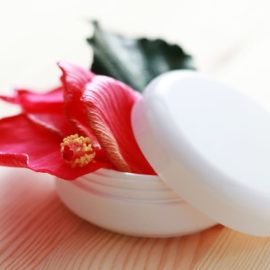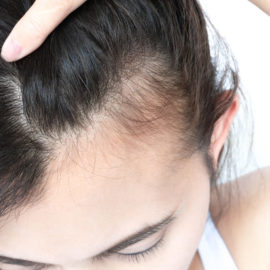The anti-sebum cream and deep cleansing washes are expected to become the next big thing, as the COVID-19 pandemic has caused stress and anxiety for many and an impact on skin health. Stress can have a marked impact on dermal health, with conditions like excessive dryness, eczema, and acne becoming common complaints. With the added stressor of frequent mask usage, acne, in particular, is a rising consumer concern. In line with this trend, we can expect to see an uptick in product launches like deep cleansing washes, topical treatments, and anti-sebum cream.
Given these conditions, acne isn’t a skin worry that only affects young people. In reality, this has never been the case: according to research conducted by Mintel last year, 40% of Brazilian adults had concerns about acne, and this skin condition is increasingly seen in the adult female population. However, this is not a concern that only affects female BPC consumers; in the same study, Mintel reported that 45% of Chinese men suffer from acne, in contrast to 38% of women. However, in the face of stressors like COVID-19, the beauty industry needs to spread positivity – and inclusion and efficacy are key.
Content
Getting to the root of acne-prone skin for the right anti-sebum treatment
Certainly, environmental factors such as heat, humidity, pollution, and mask usage can cause acne. However, the root of acne is within, as it has an important connection to genetics and hormonal fluctuations, making it essential for an anti-sebum cream to target these issues. Acne begins in the pilosebaceous unit, or the structure containing the hair follicle. Here, the duct may produce an excess of sebum, a condition known as hyperseborrhea. From here, inflammation can occur as a result of the colonization of the duct by Propionibacterium acnes, the bacteria that causes acne, and hyperkeratinization. This creates the follicular obstruction or ‘blocked pores’ that we associate with acne, and the subsequent red, irritated lesions.
Although common in adolescents, acne isn’t a condition that only affects teenagers. Adult men and women can also suffer from acne, each with their own unique concerns. Instead of marketing catch-all products focussed on teenage skin, beauty brands need to be more broad-reaching. Consumers want customized solutions, including products for thicker male skin, or sensitive skin profiles. Moreover, anti-acne products shouldn’t only treat the condition, but also prevent its resurgence.
Create tailored solutions for greater skin positivity
As emphasized above, acne is a condition that affects different individuals in different ways. Young and mature skins react differently and sufferers’ needs will change as they age. When developing anti-sebum cream, anti-acne washes, and soothing moisturizers, brands need to be inclusive, and when it comes to acne, skin positivity is an important new trend. Alongside technology, brands should take a positive approach to acne and skin health, and encourage everyone to love the skin they’re in.
But considering the diversity of acne types and triggers, how can beauty brands effectively respond to the demand for personalized, inclusive solutions? The answer may, in fact, lie with Artificial Intelligence. Harnessing technology to address emotional issues might sound paradoxical, but AI may be the key to developing products that respond to consumers’ unique demands.
For instance, a big player in beauty recently partnered with a leading microbial genomics research firm to research why acne occurs in individual skin types. Together, they developed a tool that assessed the skin’s microbiome levels to provide detailed insight into what was causing the imbalance. Combined with DNA, this produced a comprehensive picture as to the cause of breakouts, and thus, possible treatments. Certainly, this is an interesting wager; and when brands are developing anti-acne products, it seems technology is key to innovation.
A positive approach to anti-sebum cream, wash, and moisturizers
Provital kept inclusivity in mind when developing the active ingredient Trikenol™ Plus. In an in vivo study, Provital recruited 64 male and female volunteers of varying ages and used facial imaging to measure the prevalence of inflamed lesions. In the study, they found that after 21 days of use, Trikenol™ Plus reduced the area affected by lesions by 12% compared to placebo across all skin types. Among other tests, these findings demonstrated that Trikenol™ Plus is an effective active ingredient for a variety of acne profiles. With effective active ingredients, we can spread skin positivity – and create the right scientifically-proven anti-sebum cream along with other lines of products.
No comments yet
There are no comments on this post yet.





Leave a comment